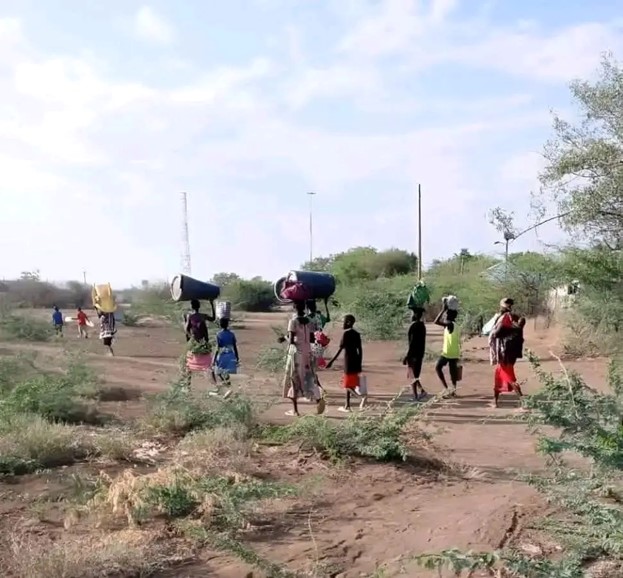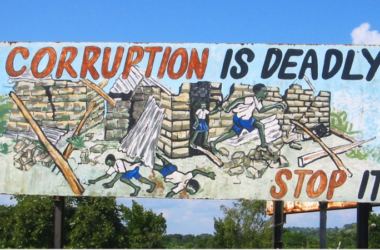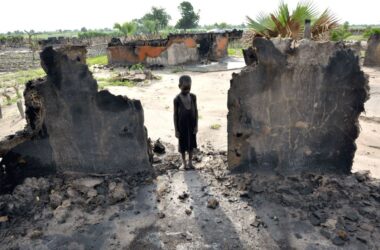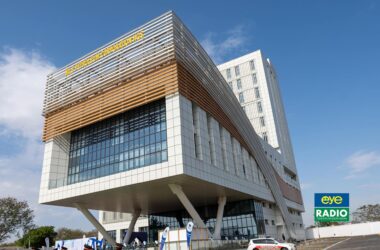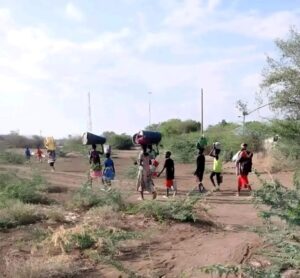
By Kei Emmanuel Duku
A new report from the Intergovernmental Authority on Development (IGAD) reveals that protracted conflicts, food insecurity, and recurring droughts are the primary drivers of migration in the region.
Charles Ogolla, Head of Statistics at IGAD, presented the staggering statistics during the launch of the second edition of the IGAD Population and Migration Report under the initiative “Towards Harmonization and Implementation of Production and Utilization of Migration Data in the IGAD Region.”
Ogolla highlighted that international migrants in the IGAD region increased sharply from 4.1 million in 2013 to 6.8 million by 2022. Notably, “migrants of working age comprise 63.3% of this total,” he said.
Despite these rising numbers, a persistent gender gap remains evident, with male migrant labor force participation at 69.6% compared to 47.6% for females, reflecting a disparity of nearly 22%.
Women and children form the majority among refugees and asylum seekers, with IGAD hosting 4.3 million refugees in 2022—about one in every six refugees globally. “These migration trends are influenced heavily by protracted conflicts, especially in Sudan, South Sudan, and Somalia,” Ogolla underscored. These conflicts are “compounded by political instability, recurring droughts, and food insecurity that displace millions within the region.”
Migration pathways are diverse, including routes through Yemen to the Middle East, Sudan and Libya toward Europe, and Kenya and Tanzania toward South Africa. “Each route embodies great risks but also the resilience of the migrants,” Ogolla added.
The regional share of international migrants in the total population stands at approximately 2.4%, with working-age migrants across Africa increasing by 56% from 2.7 million in 2010 to 4.3 million in 2022.
Meanwhile, remittance flows to the region have soared, rising from $3.2 billion to $12 billion by 2022, predominantly through formal channels. Ogolla noted, “Informal flows and related costs require further investigation for policy development.”
However, challenges persist in migration data collection, including incomplete reporting on migrant flows and lack of detailed data on migrant workers’ characteristics like education and occupation, as well as irregular migration. He concluded that “strengthening administrative data systems and harmonizing methods are key recommendations to improve migration governance and socio-economic development.”
Echoing these statistics, IGAD Deputy Executive Secretary Mohamed Abdi Waria emphasized the critical need for accurate, reliable, and timely data. He asserted that such data is essential for member states to develop evidence-based policies and national development plans, aiming for a resilient, peaceful, prosperous, and integrated region.
Waria noted that “migration in the IGAD region remains a defining feature driven by political instability, economic disparities, environmental shocks, and cultural ties.” The report, he said, highlights forced displacement as a “persistent challenge with humanitarian and developmental consequences.”
Waria stressed that without harmonized, quality data, “policies would risk being reactive instead of proactive.” he added, “With this data, IGAD can anticipate challenges, safeguard rights, and design durable solutions upholding displaced peoples’ dignity.”
The report offers policy guidance for well-governed migration that supports sustainable development, social stability, and regional integration, cautioning that poor governance risks vulnerability and exploitation.
“As IGAD implements its 2021 protocol on free movement of persons, the demand for such data will intensify, serving as a tool for advising migration governance and promoting regional prosperity,” Waria concluded.
Waria also highlighted ongoing efforts to align IGAD’s migration data with the African Union’s continental statistical strategies to build a resilient and integrated future.

